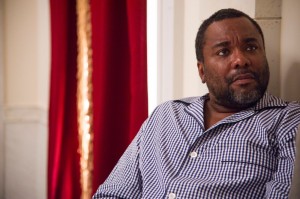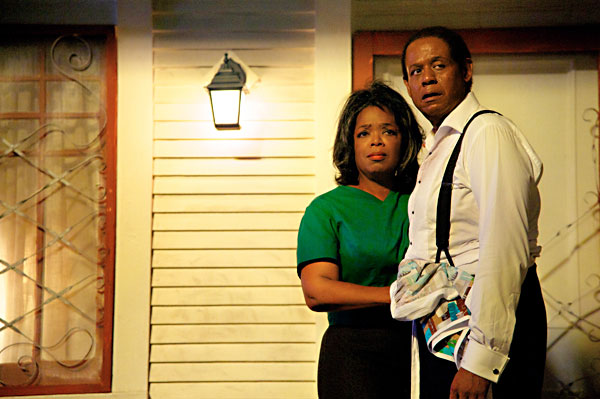Film Review: “Lee Daniels’ The Butler” — Powerful But Ambitious to a Fault
There are plenty of intensely moving moments in this expansive biopic, based very loosely on a real White House butler named Eugene Allen, who was profiled by Wil Haygood in a 2008 Washington Post feature.
Lee Daniels’ The Butler. At cinemas throughout New England.
By Glenn Rifkin
One walks out of the theater after seeing Lee Daniels’ The Butler with the distinct feeling of being both powerfully moved and overwhelmed. At the end of the day, director Daniels tries to fit way too much history into a film that begged for fewer and more focused relationships and storylines. Trying to examine the entire century of American racism through the eyes of a long-serving White House butler is an overly ambitious concept, to the point that need to cover historical turf becomes dutiful rather than dramatic.
That said, there are plenty of intensely moving moments in this expansive biopic, based very loosely on a real White House butler named Eugene Allen, who was profiled by Wil Haygood in a 2008 Washington Post feature. In The Butler, Forest Whitaker turns in a tour de force performance as a man who is touched on every level by the worst examples of American bigotry and racism. He learns at a young age, as a sharecropper’s son, that artfully serving the white man is a ticket to a better life, an existence that provides a nice, middle-class existence wrapped in the humiliation of servitude. After witnessing his mother’s rape and his father’s murder by a plantation owner in the Jim Crow South, the boy Cecil Gaines swallows the bitter pill of hatred and revenge in order to survive. Given a chance to be a “house nigger” on the plantation, he learns how to dress, how to serve food and drink, and to avoid eye contact with the people he is serving. He must in every sense become invisible.
Daniels, who directed the highly praised, Academy Award-winning Precious in 2008, takes Danny Strong’s script and presents Cecil’s story in a succession of neat time capsules built around each president he served. Oprah Winfrey, as Cecil’s alcoholic wife Gloria, turns in an award-level performance, subtle and restrained and emotionally charged. Her slow twitch dance in a 70’s era bodysuit and Afro wig is sure to become an iconic image when her life story is recounted in a future television tribute. Her first film role since 1998’s Beloved, Oprah demonstrates that she still has acting chops worth watching.
But the driving force in the movie is Cecil’s relationship with his older son Louis, played with stormy ferocity by David Oyelowo, particularly when Louis charges full-bore into the nascent civil rights movement. For a man who long ago learned to go-along to get-along, Cecil is outraged by his son’s protests. At the same time, he is terrified that Louis will be killed fighting for the cause. He has served as a butler in order to provide his sons a chance at a better life, a secure life in a white man’s world. Instead, Louis has become a warrior in an unwinnable war. Cecil’s journey to the front lines is the emotional heart of the film.
Cecil’s emergence as a much-admired White House butler, serving seven presidents, is where the movie runs into narrative walls. Whitaker is consistently brilliant, finding dignity in his role, regardless of its posture of elemental subservience. But Daniels’s decision to use a cadre of well-known Hollywood stars—from Robin Williams as, yes, I’m not kidding, Dwight Eisenhower, and yes, it as absurd as you might expect, to Alan Rickman as Ronald Reagan—is a mistake. There simply isn’t enough make-up or CGI available to make us embrace John Cusack as Richard Nixon. Instead, each new president is a startling wake-up call to play trivial pursuit . . . wait, is that Liev Schreiber doing LBJ? Yikes.
In addition, by trying to squeeze so much history into a movie time slot, the film ultimately slips, not completely but enough to lose a star or two in its rating. Taking on the civil rights movement is an important endeavor for filmmakers: The Butler suggests that finding the right story to tell may be the toughest challenge. Perhaps the non-stop tour of the White House would have made a great, American mini-series for PBS’s Masterpiece Theater. Here the presidents are reduced to caricatures, emerging as flat and essentially unbelievable.
Told through Cecil’s aged, world-weary narration, we are led to the movie’s denouement when the butler finally quits his job, summons the courage to reconcile with Louis (who happens to be staging a protest outside the White House), and finally understands that his son’s rage was in fact the manifestation of his own, repressed during a lifetime of oppression. Moved as I was, I found myself waiting for Fred Armisen to show up as Barack Obama.
Glenn Rifkin is a veteran journalist and author who has covered business for many publications including The New York Times for more than 25 years. Among his books are Radical Marketing and The Ultimate Entrepreneur. His efforts as an arts critic represent a new and exciting direction.
Tagged: Alan Rickman, Alex Pettyfer, Clarence Williams III, Cuba Gooding Jr., David Oyelowo, Elijah Kelley, Forest Whitaker, James Marsden, Jane Fonda, John Cusack, Lee Daniels., Lee Daniels' The Butler, Lenny Kravitz, Liev Schreiber, Minka Kelly, Oprah Winfrey, Robin Williams, Terrence Howard, Vanessa Redgrave


